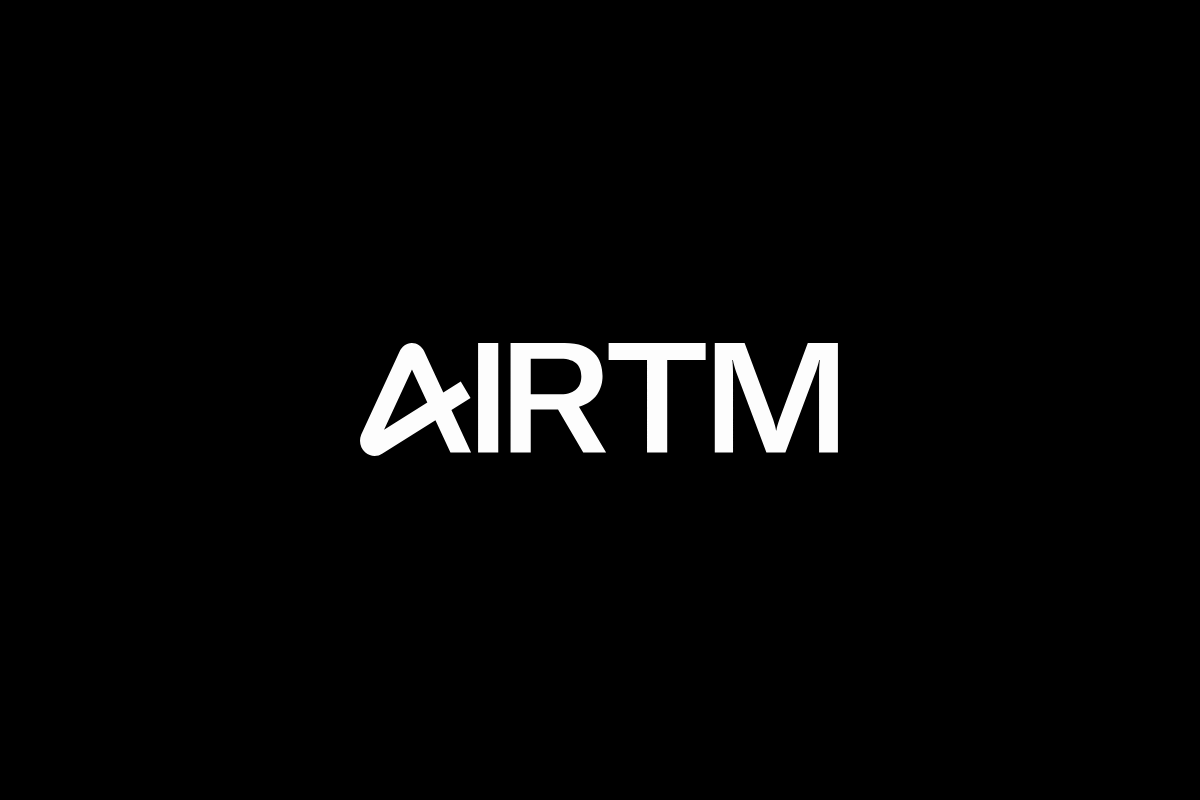Fintech
Avivagen: The OxC-beta(TM) Technology Is A True Game Changer

New York, New York–(Newsfile Corp. – July 23, 2020) – Life science stocks are gaining an increasing amount of attention with every passing day as the world continues to battle with the COVID-19 pandemic. Over and above the pharma and biotech players engaged in the development of vaccines and drugs meant to counter the SARS-CoV-2, there is also a rising need to focus on livestock health. Enhancing livestock health without the use of antibiotics has become a must in order to prevent the emergence of deadly diseases including so-called superbugs. Avivagen Inc. (TSXV: VIV), (OTCQB: VIVXF) is a Life Sciences player that caters directly to this need and is at a very interesting juncture today. The company is building a compelling growth story as it has gone on to receive numerous country approvals across many large livestock markets in the world.
Read the Full Article Here: http://smallcapsdaily.com/avivagen-the-oxc-beta-technology-is-a-true-game-changer/
Background About Avivagen And Its OxC-beta™ Technology
Avivagen is a Canadian-based life sciences corporation focused on developing and commercializing products for livestock, companion animal and human applications that safely enhance and support immune function, thereby supporting general health and performance. With over 80% of the world’s antibiotics currently used as growth promoters in livestock feed, the company is engaged in the development and commercialization of products to replace antibiotics in livestock feed and reduce disease by priming their immune systems. Its patented OxC-beta™ technology was developed from years of research with respect to oxidized β-carotene and other carotenoids, the compounds that give certain fruits and vegetables their bright colours and support the bodily defence functions. The company’s proprietary product has proven to be an effective immune priming and anti-inflammatory tool, as well as a cost-efficient and economic alternative to combat the Antimicrobial Resistance crisis facing the world today. The importance of this cannot be over emphasized as most superbugs originate with the use of antibiotics in livestock feed. Avivagen also produces Vivamune and Dr. Tobias’ All-In-One Dog Chews (distributed through the Mimi’s Rock platform on Amazon) which are suitable for pets of all ages and are exploring the use of its OxC-beta™ technology in the Human Nutraceutical industry. Overall, the company is building a solid product range for domestic and export markets.
International Growth Story
Avivagen’s management has been in the process of obtaining country approvals across the globe, with the aim of exporting its products worldwide. This has involved numerous international livestock trials of its products and resulted in the company currently approved to sell its products in the United States, Philippines, Taiwan, New Zealand, Thailand, Mexico, Australia and Malaysia. The company continues to target a wide customer group including government agencies, global health organizations, livestock producers and livestock feed companies. Avivagen was recently in the news for receiving approval from The Ministry of Agriculture-Feed Additives Division in Brazil, allowing it now to supply its OxC-beta™ Livestock product for use in poultry, swine and cattle in that country. The company also signed a distribution agreement with established São Paulo-based Look Chemicals Importacao E Exportacao LTDA for the use of OxC-beta™ Livestock in poultry and swine. It has already executed a major order with Industrias Melder in Mexico which could result in a long-term contract for the company.
Animal Health – An Evolving Market
As per GM Insights research, the global animal health market was valued at $129.9 billion in 2018 and is expected to reach a value of $172.5 billion by 2025 implying a 4.6% annualized growth rate. The number is bound to get a significant boost after the COVID-19 pandemic which has had its origins in the meat market of the Wuhan province in China, thus raising concerns all over the world regarding the health and quality of livestock. As of today, livestock is administered constant doses of antibiotics upon any form of illness which has led to a huge risk of antibiotic resistance by pathogens and is causing increasing deaths each year. There are over 2 million infections and almost 700,000 deaths each year of which about 160,000 are U.S. deaths as per the National Resources Defense Council Report. In fact, pathogens affecting livestock have evolved so much that viruses like the COVID-19 appear to be just the beginning. After the adverse global impact of the COVID-19, Government authorities have started seeing the drawbacks in the excessive use of antibiotics on livestock and the importance of improving livestock immunity to fight pathogens. As a result, we foresee a strong demand of Avivagen’s OxC-Beta product as livestock farmers and regulators are looking for a low-cost solution to boost their animals’ immunity and provide minimal doses of antibiotics, following the lead of Europe, which banned antibiotic use in 2006, and China who in July of this year banned all antibiotic use in commercial livestock farming.
Final Thoughts
While most of Avivagen’s revenues so far have been through discrete purchase orders, it appears these orders are starting to convert into long-term ongoing contracts resulting in a consistent revenue stream. Its unit economics are strong as the company operates mainly through distributors and not on a direct basis which is why its gross margins are healthy. Management is looking to break-even and achieve a positive bottom-line in the near-term, despite the global economic crisis caused by the COVID-19 pandemic. There is a tremendous confidence being shown by countries in the OxC-beta™ technology and it appears to only be a matter of time before Avivagen can reap the financial rewards of its efforts.
Forward-Looking Statements
This press release may contain forward-looking statements, including information about management’s view of Applied UV, Inc. (“the Company”), future expectations, plans and prospects. In particular, when used in the preceding discussion, the words “believes,” “expects,” “intends,” “plans,” “anticipates,” or “may,” and similar conditional expressions are intended to identify forward-looking statements. Any statements made in this press release other than those of historical fact, about an action, event or development, are forward-looking statements. These statements involve known and unknown risks, uncertainties and other factors, which may cause the results of the Company, its subsidiaries and concepts to be materially different than those expressed or implied in such statements. Unknown or unpredictable factors also could have material adverse effects on the Company’s future results. The forward-looking statements included in this press release are made only as of the date hereof. The Company cannot guarantee future results, levels of activity, performance or achievements. Accordingly, you should not place undue reliance on these forward-looking statements. You are urged to carefully review and consider any cautionary statements and other disclosures. Finally, the Company undertakes no obligation to update these statements after the date of this press release, except as required by law, and also takes no obligation to update or correct information prepared by third parties that are not paid for by Applied UV, Inc.
Contact:
Smallcaps Daily
Email: [email protected]
Website: https://smallcapsdaily.com
To view the source version of this press release, please visit https://www.newsfilecorp.com/release/60402
Fintech
Fintech Pulse: Your Daily Industry Brief (Chime, ZBD, MiCA)

As we close out 2024, the fintech industry continues to deliver headlines that underscore its dynamism and innovation. From IPO aspirations to groundbreaking regulatory milestones, today’s updates highlight the transformative power of fintech partnerships, regulatory evolution, and disruptive technologies. Here’s what you need to know.
Chime’s Quiet Step Toward Public Markets
Chime, the U.S.-based financial technology startup best known for its digital banking services, has taken a significant step by filing confidential paperwork for an initial public offering (IPO). As one of the most valuable private fintechs in the U.S., Chime’s move could potentially signal a renewed appetite for fintech IPOs in a market that has been cautious following fluctuating valuations across the tech sector.
With a valuation that reportedly exceeded $25 billion in its last funding round, Chime’s IPO could set a new benchmark for the industry. Observers note that its strong customer base and revenue growth may make it an appealing choice for investors seeking to capitalize on the digital banking boom. However, the timing and success of the IPO will depend on broader market conditions and the regulatory landscape.
Source: Bloomberg
ZBD’s Pioneering Achievement: EU MiCA License Approval
ZBD, a fintech company specializing in Bitcoin Lightning network solutions, has made history by becoming the first to secure an EU MiCA (Markets in Crypto-Assets Regulation) license. This landmark approval by the Dutch regulator positions ZBD at the forefront of compliant crypto-fintech operations in Europe.
MiCA, which aims to harmonize the regulatory framework for crypto-assets across the EU, has been a focal point for industry players aiming to establish legitimacy and expand their offerings. ZBD’s achievement not only validates its operational rigor but also sets a precedent for other fintech firms navigating the evolving regulatory landscape.
Industry insiders view this as a strategic advantage for ZBD as it broadens its footprint in Europe. By leveraging its regulatory approval, the company can accelerate its product deployment and establish trust with institutional and retail users alike.
Source: Coindesk, PR Newswire
The Fintech-Credit Union Synergy: A Blueprint for Innovation
The convergence of fintechs and credit unions continues to reshape the financial services ecosystem. Collaborative initiatives, such as the one highlighted in the recent partnership between fintech innovators and credit unions, are proving to be a potent force in delivering tailored financial solutions.
This “dream team” approach allows credit unions to leverage fintech’s technological expertise while maintaining their community-focused ethos. Key areas of collaboration include digital payments, personalized financial management tools, and enhanced loan processing capabilities. These partnerships not only enhance member engagement but also enable credit unions to remain competitive in an increasingly digital-first financial environment.
Industry analysts emphasize that such collaborations underscore a broader trend of traditional financial institutions embracing fintech-driven solutions to bridge service gaps and foster innovation.
Source: PYMNTS
Tackling Student Loan Debt: A Fintech’s Mission
Student loan debt remains a pressing issue for millions of Americans, and a Rochester-based fintech aims to offer relief through its cloud-based platform. This innovative solution is designed to simplify loan management and provide borrowers with actionable insights to reduce their debt burden.
The platform’s features include repayment optimization tools, personalized financial education, and seamless integration with loan servicers. By addressing the complexities of student loan management, this fintech is empowering borrowers to make informed decisions and achieve financial stability.
As the student loan crisis continues to evolve, solutions like this highlight the critical role fintech can play in addressing systemic financial challenges while fostering financial literacy and inclusion.
Source: RBJ
Industry Implications and Takeaways
Today’s updates underscore several key themes shaping the fintech landscape:
- Regulatory Milestones: ZBD’s MiCA license approval exemplifies the importance of regulatory compliance in unlocking growth opportunities.
- Strategic Partnerships: The collaboration between fintechs and credit unions demonstrates the value of combining technological innovation with traditional financial models to drive customer-centric solutions.
- Market Opportunities: Chime’s IPO move reflects a potential revival in fintech public offerings, signaling confidence in the sector’s long-term prospects.
- Social Impact: Fintech’s ability to tackle systemic issues, such as student loan debt, showcases its role as a force for positive change.
The post Fintech Pulse: Your Daily Industry Brief (Chime, ZBD, MiCA) appeared first on News, Events, Advertising Options.
Fintech
SPAYZ.io prepares for iFX EXPO Dubai 2025

Leading global payments platform SPAYZ.io has confirmed it will be attending iFX EXPO Dubai 2025 on 14 to 16 January. Exhibiting at Stand 64 at Trade Centre Dubai, SPAYZ.io’s team of professionals will be on hand providing live demonstrations of its renowned payment services for payment providers. Attendees will also receive exclusive insight into SPAYZ.io’s plans for 2025 alongside early early access to its upcoming plans for the new year.
SPAYZ.io delivers a host of payment solutions that leverage the latest technological innovations and open access to the fastest growing emerging markets across Africa, Europe and Asia. Over the past year, there has been huge demand for its Open Banking and local payment method services, alongside bank transfers, mass payouts, online banking and e-wallets.
Yana Thakurta, Head of Business Development at SPAYZ.io commented: “We look forward to once again participating at iFX Dubai to expand our network of partners and clients. It’s a fantastic way to kick off the year, connecting with thousands of industry leaders from FOREX platforms to trading companies, and everything in between.
“Our key goal for iFX Dubai EXPO 2025 is to expand our portfolio of solutions and geographies. We’re using this as an opportunity to partner with like-minded entities who share our ambition to provide payment solutions that are truly global.”
Come meet SPAYZ.io’s team at the Trade Centre Dubai at Stand 64. You can also book a meeting slot with a member of a team.
The post SPAYZ.io prepares for iFX EXPO Dubai 2025 appeared first on News, Events, Advertising Options.
Fintech
Airtm Enhances Its Board of Directors with Two Strategic Appointments

Airtm, the most connected digital dollar account in the world, is proud to announce the addition of two distinguished industry leaders to its Board of Directors: Rafael de la Vega, Global SVP of Partnerships at Auctane, and Shivani Siroya, CEO & Founder of Tala. These appointments reflect Airtm’s commitment to innovation and financial inclusion as the company enters its next phase of growth.
“We are thrilled to welcome Rafael and Shivani to Airtm’s Board of Directors,” said Ruben Galindo Steckel, Co-founder and CEO of Airtm. “Their unique perspectives and proven track records will be invaluable as we continue scaling our platform to empower individuals and businesses in emerging markets. Together, we’ll push the boundaries of financial inclusion and innovation to create a more connected and equitable global economy. Rafael and Shivani bring a wealth of experience and strategic insight that will strengthen Airtm’s mission to connect emerging economies with the global market.”
Rafael de la Vega, a seasoned leader in fintech global partnerships and technology innovation, is currently the Global SVP of Partnerships at Auctane. With a proven track record of delivering scalable, impactful solutions at the intersection of fintech, innovation, and commerce, Rafael’s expertise will be pivotal as Airtm continues to grow. “Airtm has built a platform that breaks down barriers and opens up opportunities for people in emerging economies to connect to global markets. I am excited to contribute to its growth and help further its mission of fostering financial inclusion on a global scale,” said Rafael.
Shivani Siroya, CEO and Founder of Tala, is a pioneer in financial technology, renowned for empowering underserved communities through access to credit and essential financial tools. Her leadership in leveraging data-driven innovation aligns seamlessly with Airtm’s vision of creating more equitable financial opportunities. “Empowering underserved communities has always been at the core of my work, and Airtm’s mission resonates deeply with me. I’m thrilled to join the Board and work alongside such a dynamic team to expand access to financial tools that truly make a difference in people’s lives,” said Shivani.
The post Airtm Enhances Its Board of Directors with Two Strategic Appointments appeared first on News, Events, Advertising Options.
-

 Fintech5 days ago
Fintech5 days agoFintech Pulse: Your Daily Industry Brief (Synapse, Shenzhen Institute, Visa, AutomatIQ, MeridianLink)
-

 Fintech4 days ago
Fintech4 days agoFintech Pulse: Your Daily Industry Brief (Revolut, Bestow, Advyzon, Tyme Group, Nubank)
-

 Fintech2 days ago
Fintech2 days agoFintech Pulse: Your Daily Industry Brief (Chime, ZBD, MiCA)
-

 Fintech4 days ago
Fintech4 days agoAsian Financial Forum returns as region’s first major international financial assembly in 2025
-

 Fintech5 days ago
Fintech5 days agoNASDAQ-Listed LYTUS Appoints Visionary Leader Sai Guna Ranjan Puranam as COO (Lytus Healthcare) and Group CTO (Lytus Technologies) to Revolutionize Healthcare and Technology
-

 Fintech5 days ago
Fintech5 days agoDhaka Court Dismisses Allegations Against Nagad Founder Tanvir A Mishuk
-

 Fintech PR3 days ago
Fintech PR3 days agoGan & Lee Pharmaceuticals Announces U.S. FDA Clearance of the IND application for the innovative Bi-weekly GLP-1RA GZR18 Injection, Bofanglutide, with chronic weight management Indication (A Phase 2 head-to-head with Tirzepatide clinical trial)
-

 Fintech PR5 days ago
Fintech PR5 days agoFrost & Sullivan Recognizes AllianceOne and Central Florida Expressway Authority with 2024 Customer Value Leadership Award








